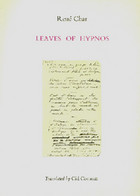
Anabasis
Book Description
When the winds of destiny sweep across a desolate landscape, the echoes of memory and longing intertwine. In "Anabasis," Saint-John Perse captures the raw essence of human resilience and transformation amidst chaos. This powerful journey unfolds through poetry, as haunting imagery and vivid landscapes become the backdrop for profound existential battles. Characters face their deepest fears and desires, forging connections that defy the ravages of time and conflict. Can one find solace and meaning in the shadows of past and present? As the tale unfolds, the question lingers: what price must be paid to reclaim one's soul in the vastness of the unknown?
Quick Book Summary
"Anabasis" by Saint-John Perse is a sweeping poetic epic that explores the journey of a nameless protagonist through a barren, shifting landscape symbolic of existential wandering. Through haunting, symbolic imagery, Perse examines the eternal cycle of departure, conquest, and return, weaving an intricate tapestry of memory, longing, and transformation. The poem delves deeply into themes of exile and the search for meaning against the backdrop of tumultuous change. Characters, more archetypal than individual, grapple with the ghosts of their past and the uncertainty of what lies ahead, forging connections that transcend geography and time. Perse’s language is at once austere and grand, offering a meditation on the human capacity for resilience, adaptation, and spiritual renewal amidst chaos and adversity. This Nobel Prize-winning work stands as a monument to the courage required to reclaim one’s soul while venturing through the unknown.
Summary of Key Ideas
Table of Contents
The Journey as Metaphor for Human Existence
Saint-John Perse’s "Anabasis" opens as an odyssey, centering on an unnamed leader journeying through vast, arid landscapes. This journey is at once physical and spiritual, reflecting humanity’s perennial quest for identity amid upheaval. The barren world Perse describes becomes a metaphor for exile, emphasizing both literal displacement and the psychological states of alienation and loss. The poem’s imagery—of wind, sand, and endless plains—evokes a sense of vastness and desolation, setting the tone for the protagonist’s search for purpose in a chaotic and indifferent universe.
Exile, Memory, and Longing
Exile shapes the characters’ perceptions, coloring everything with memory and longing. Perse portrays the longing for lost homelands and vanished eras, exploring how memories haunt and yet guide those cast adrift. This tension between nostalgia and the necessity of forging ahead permeates the narrative, with recollections of distant cities serving as reminders of identity as well as obstacles to transformation. Characters are frequently depicted as both haunted and driven, negotiating the tenuous balance between holding onto the past and embracing the future.
Nature and the Desolate Landscape as Inner State
Nature’s harshness is more than backdrop; it is a mirror of inner turmoil and existential struggle. The landscapes—windswept deserts, silent skies, and harsh sunlight—reflect the travelers’ isolation and internal battles. Through these poetic descriptions, Perse examines how one’s environment can shape consciousness and affect spiritual journeys. The imagery provides both a sense of danger and the possibility of transcendence, suggesting that the desolate outside world can become a crucible for inner growth.
Resilience and Transformation Amidst Chaos
At its core, "Anabasis" is about resilience—the act of pressing forward in the face of adversity and uncertainty. The protagonists’ perseverance against chaos becomes symbolic of the human spirit’s enduring capacity to adapt, transform, and ultimately triumph over despair. Perse crafts scenes of hardship and confrontation, showing how adversity forges new connections and deeper understanding. Personal battles become universal, echoing the complexities of survival and the potential for renewal after suffering.
The Search for Meaning and Spiritual Renewal
Finally, the poem meditates on the search for meaning and the possibility of spiritual renewal. As the journey unfolds, moments of epiphany emerge from the trials endured, offering glimpses of solace and the prospect of redemption. Perse’s characters come to realize that meaning is not found in material conquest or nostalgic longing, but in forging new bonds and finding purpose amidst the tumult. The poem ends with a sense of tentative hope, suggesting that, through resilience and openness to transformation, the soul can be reclaimed—even in the vastness of the unknown.
Download This Summary
Get a free PDF of this summary instantly — no email required.





